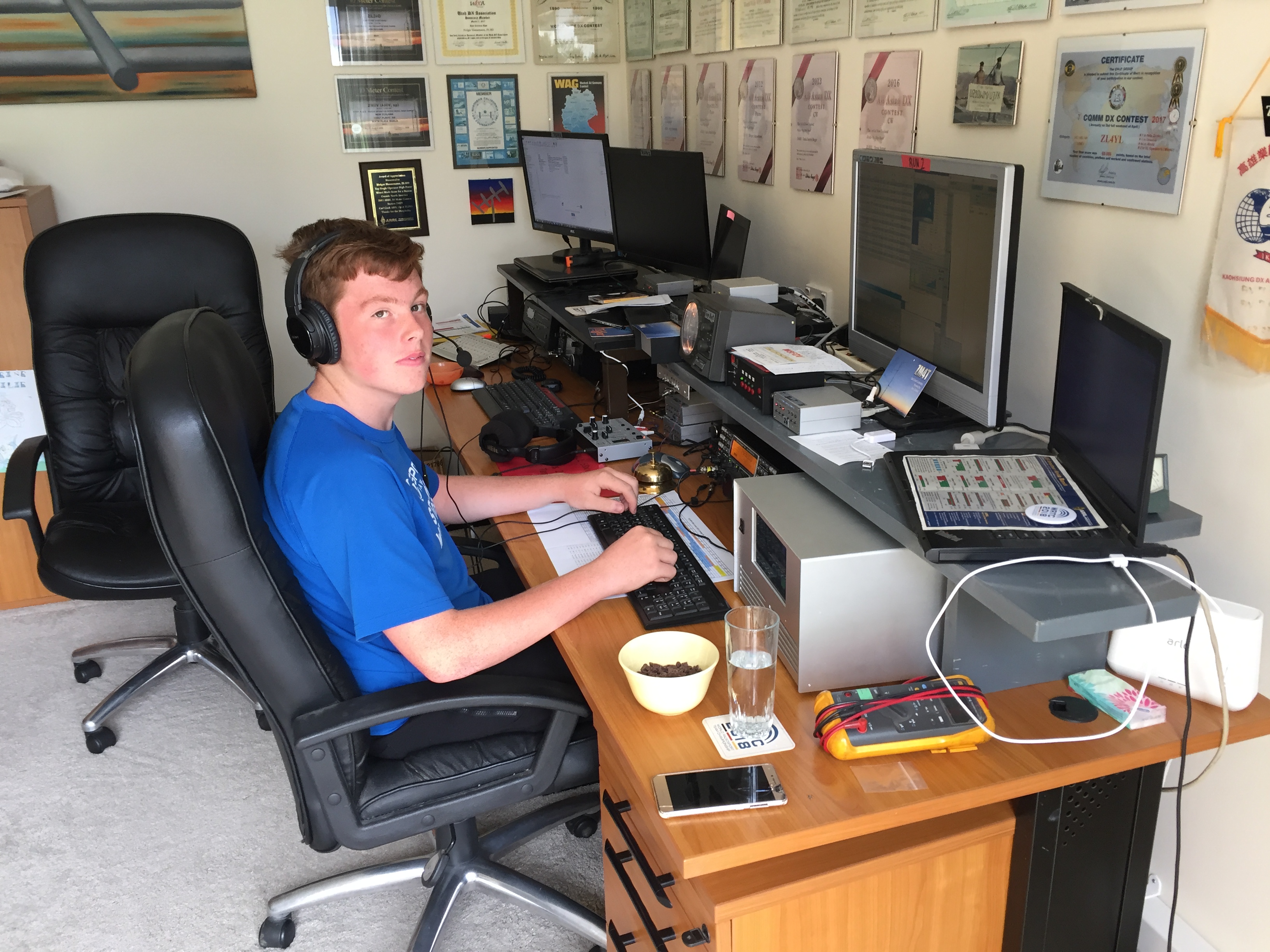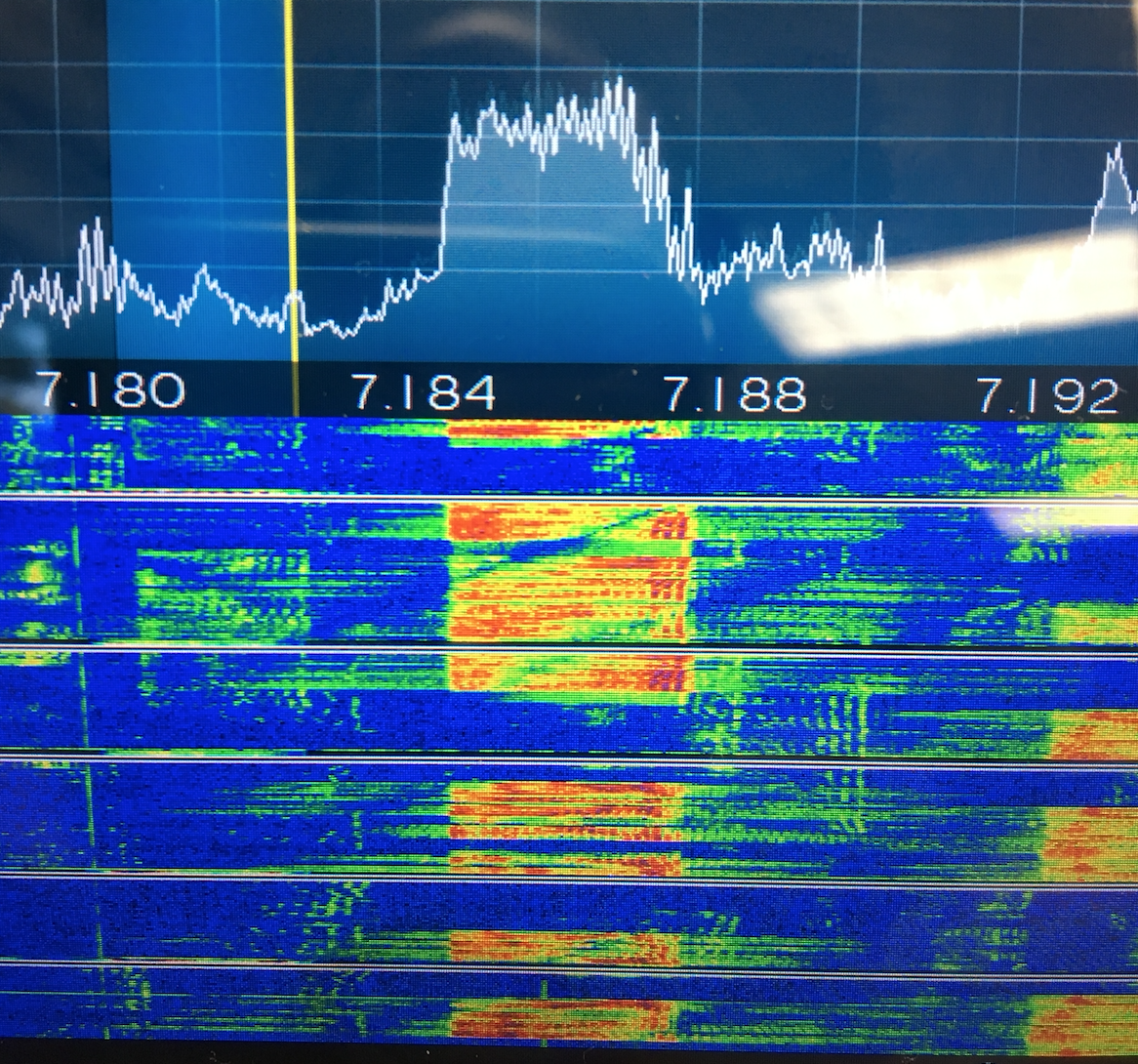 April 3, 2019 Editor: Paul Bourque, N1SFE | ||||
IN THIS ISSUE
U.S. operators licensed for three years or fewer might try the ARRL Rookie Roundup on April 14, 2019. This 6-hour SSB activity complements the CW and RTTY versions that occur in December and August. This event focuses on providing an introduction to competitive contesting. Mentoring of new contesters by those more 'seasoned' is encouraged! State QSO parties for Missouri, Mississippi, New Mexico, Georgia, and North Dakota are in the next 2 weeks. QSO parties are a great way to be as serious as you'd like to be in pursuit of a goal, and have fun. 4 Apr - 17 Apr 2019 Complete information for all contests follows the Conversation section April 4 April 5 April 6
April 7 April 8 April 10 April 11 April 12 April 13
April 14
April 15 April 16 April 17 The Central States VHF Conference will be held July 25-28, 2019 in Lincoln, Nebraska. Although conference details are not finalized and registration is not yet open, they ask that you check the website for further details. If you are interested in presenting at the conference, check the guidelines. Suggested topic areas include "Operating: including Contesting, Roving, and DXpeditions." Finding an RFI-quiet place to operate from is a challenge with modern electronics all around us. One thing you might do is try portable operations away from homes, businesses, and civilization in general. But where to stay? The USDA Forest Service will rent you a cabin, or even better, a fire lookout tower! By nature, most of these locations are remote, and fire lookouts generally have a height advantage. The one catch is that the "season" for many rentals does not include late fall or winter. Don't bring RFI problems with you by bringing any RFI-emitting chargers. QRM.GURU is a new website sponsored by RASA, the Radio Amateur Society Australia, that aims to point to resources that can help identify, locate, and reduce the incidence of manmade noise to Amateur Radio operation. The European FT8 Club is sponsoring an FT8 DX Contest on April 13, 2019 1200z through April 14, 2019 1200z. Everyone works everyone in this contest, and the maximum power category for the contest is 100 W. The exchange format is the same as the ARRL RTTY Roundup, with state/province for US/Canada stations, and serial number for DX. The Surrey (British Columbia) Amateur Radio Club's monthly newsletter "The Communicator" is available. While this month's focus is on antennas, there's something for everyone in its 80 well-produced pages. Back issues are the the website, too. Buckshot Another term for signal splatter, usually caused by too-high microphone gain combined with compression. James, K7KQA, has posted a video of his completed kit construction of a VHF Design power amplifier for 1296 MHz. With 2.5 W able to drive 300 W output, he anticipates mounting it at the dish along with a low noise amplifier (LNA) for EME operation. George, K5TR, opened up his station for a tour and operation by Johnny, W5KV. His visit also coincided with the ARRL International DX Contest. In Johnny's video of the visit, you get to see the shack, antennas, and listen in on some contest operation. Many familiar stations have posted pictures and comments about last weekend's CQ WW WPX Contest to Twitter using the #CQWPX and #CQWPXSSB hashtags. Some stations hand-logged the contest!
Holger, ZL3IO, writes about the Youth Contesting Activity at ZM4T in the just-completed CQ WW WPX Contest: "The operators were ZL2EM -- Alice (17), ZL4YL -- Xenia (17), and Jaidyn -- ZL4WW (15). For Jaidyn it was actually the first time he got on the HF bands! Most of the time the kids (especially the girls) managed themselves. The girls...are regulars here and know the station. The conditions were terrible. 10 meters was a no-show. 15 meters was like a bad day on 10 with deep QSB and signals only coming out of the noise for seconds before they disappeared again. We had strong auroral flutter on all DX on 10 meters even though we have no polar path to JA or US. 40 meter conditions were good and...it was the money band here. Around New Zealand we have a lot of water, but only 100-200 potential contesters within a 10,000 km radius. With high band conditions being in bad shape it meant many slow hours of calling CQ into the noise. It seemed everybody was on 40/20 meters and when finally there was some business, holding a frequency was tough to impossible for the kids. We shut down the station at local Sunday 10 pm, which is around Sunday 9 am UTC since they all had to be back in school on Monday morning. We hope we can repeat this."
At the time of this writing, Team Exuberance at K3LR is looking very strong in the results for the CQ WPX SSB contest on 3830scores.com. According to Tim, K3LR: "Looks like a new 3rd call area all-time record for Team Exuberance in the CQ WPX phone contest!" They are reporting 23,796,192 points, with 6008 contacts. The team included Violetta, KM4ATT; Marty, NN1C; Tomi, HA8RT; Bryant, KG5HVO; David, VE7DZO; and Levi, K6JO. There were a number of other youth-oriented operations for the CQ WW WPX Contest, including ZM4T, which was all young people, and at 9A7P, 14-year-old Jakov was the operator. On the Sunday of the contest, there were many stations searching and pouncing that were NOT in the Super Check Partial database, indicating that there were many casual operators participating in the contest. That's great news, too! Monitor your Transmitted Signal If you're using an amplifier and compression, a good practice is to monitor your transmitted signal for splatter, hum, distortion, and other undesirable characteristics using spectral monitoring tools. Since many modern radios ship with these capabilities built in, you could probably ask another operator with these tools to take a picture of your signal with their phone and send it to you. A splatter-infused 8-kHz-wide signal caused by gratuitous compression might earn some elbow room in crowded band conditions during a contest, but the cost might be a DQ from the contest sponsor for "unsportsmanlike conduct." Make sure you understand what you're seeing, and that the methods used reflects transmission characteristics, and not artifacts of the receiving setup.
Lance W7GJ, reports via the Pacific Northwest VHF Reflector that the VHF/UHF comparison tables by Lionel, VE7BQH were updated on March 26, 2019, and are available on his website. The tables cover antennas for 6 meters through 70 cm. The "week counter field" in GPS messages turns over on April 6. This may, or may not affect applications that depend on this data field in the GPS stream, depending on how the application was written. This rollover event has occurred before in 1999, but since that time there's been a proliferation of inexpensive GPS chips embedded in all sorts of devices. Tower and roof-mounted equipment presents its own set of challenges for environment protection, temperature control, and power. Enclosures and gear that work for Wireless Internet Service Providers (WISPs) would also work for Amateur Radio purposes. Analog Devices' Student Zone website provides "articles, tutorials, and a wealth of other helpful resources" around analog electronics, many featuring lab experiments based on inexpensive USB based multi-tool providing the functionality of an oscilloscope and function generator. Recent articles include tutorials on bandpass and bandstop filters, and impedance measurements. (Ward, N0AX) Sometimes It's Not Helpful to be Helpful While operating in the CQ WW WPX Contest last weekend conditions made it difficult to copy the exchange of some stations. This sometimes required asking for multiple repeats to tease the serial number out of the ether between QSB and QRM. It's part of the game, the reason why this contest uses a non-prefillable datum for the exchange. Multiple repeats are time consuming and can be frustrating for the stations involved in the QSO. For any other stations waiting for a contact and listening to both sides, it also must be frustrating, especially if they can hear both sides clearly. A couple of times during the contest, one of the listening/waiting stations would "help" me or the other side by conveying the exchange information. This is not OK. Do not do this. In the one instance that I recall most vividly, I'd finally copied the exchange in the clear, at a QSB peak, when there wasn't QRM, and was about to confirm to the sender when the exchange information also came in loud and clear from someone else on the frequency. I did not feel a sense of relief - quite the opposite. I was disappointed. Since I'd worked so hard on getting that exchange, my efforts were instantly diminished by that two-digit utterance by someone who was impatient and didn't want to wait. I don't know which of my subsequent callers actually provided that bit of information. In reading the rules, I don't see that this practice is specifically forbidden, but I would classify it under "unsportsmanlike conduct." Is this a situation to be remedied? Is there even a remedy to this situation? Throw out the QSO, which punishes the wrong parties? Or like so many other aspects of contesting, do we trust the integrity of the operators involved in the actual QSO to interpret whether the QSO should be logged as valid? That's all for this time. Remember to send contesting-related stories, book reviews, tips, techniques, press releases, errata, schematics, club information, pictures, stories, blog links, and predictions to [email protected] 73, Brian N9ADG 04 Apr - 17 Apr 2019 An expanded, downloadable version of QST's Contest Corral is available as a PDF. Check the sponsors' website for information on operating time restrictions and other instructions. HF CONTESTS CWops Mini-CWT Test, Apr 3, 1300z to Apr 3, 1400z and, Apr 3, 1900z to Apr 3, 2000z and, Apr 4, 0300z to Apr 4, 0400z; CW; Bands: 160, 80, 40, 20, 15, 10m; Member: Name + Member No., non-Member: Name + (state/province/country); Logs due: April 6. VHF+ CONTESTS SARL VHF/UHF Digital Contest, Apr 6, 1000z to Apr 7, 1000z; Digital; Bands: 50 MHz, 70 MHz, 144 MHz, 432 MHz, 1296 MHz; RST + 6-character grid locator; Logs due: April 29. Also, see Missouri QSO Party, Mississippi QSO Party, F9AA Cup, SKCC Weekend Sprintathon, Texas States Parks on the Air, New Mexico QSO Party, North Dakota QSO Party, Georgia QSO Party, ARRL Rookie Roundup, above. 04 Apr - 17 Apr 2019 April 4, 2019 April 5, 2019 April 6, 2019 April 7, 2019 April 8, 2019 April 9, 2019 April 10, 2019 April 11, 2019 April 12, 2019 April 13, 2019 April 14, 2019 April 15, 2019 April 16, 2019 April 17, 2019 ARRL Information Click here to advertise in this newsletter, space subject to availability. Your One-Stop Resource for Amateur Radio News and Information ARRL membership includes QST, Amateur Radio's most popular and informative journal, delivered to your mailbox each month. Subscribe to NCJ - the National Contest Journal. Published bimonthly, features articles by top contesters, letters, hints, statistics, scores, NA Sprint and QSO Parties. Subscribe to QEX - A Forum for Communications Experimenters. Published bimonthly, features technical articles, construction projects, columns and other items of interest to radio amateurs and communications professionals. Free of charge to ARRL members: Subscribe to The ARRL Letter (weekly digest of news and information), the ARES E-Letter (monthly public service and emergency communications news), Division and Section news -- and much more! ARRL offers a wide array of products to enhance your enjoyment of Amateur Radio. Visit the site often for new publications, specials and sales. Donate to the fund of your choice -- support programs not funded by member dues! Reprint permission can be obtained by sending email to [email protected] with a description of the material and the reprint publication. ACKNOWLEDGMENTS ARRL Contest Update wishes to acknowledge information from WA7BNM's Contest Calendar and SM3CER's Contest Calendar. | ||||









